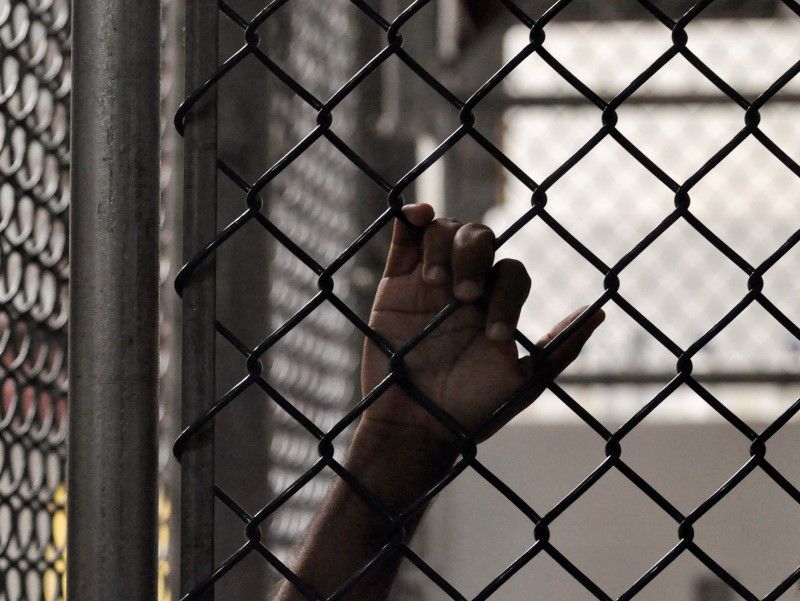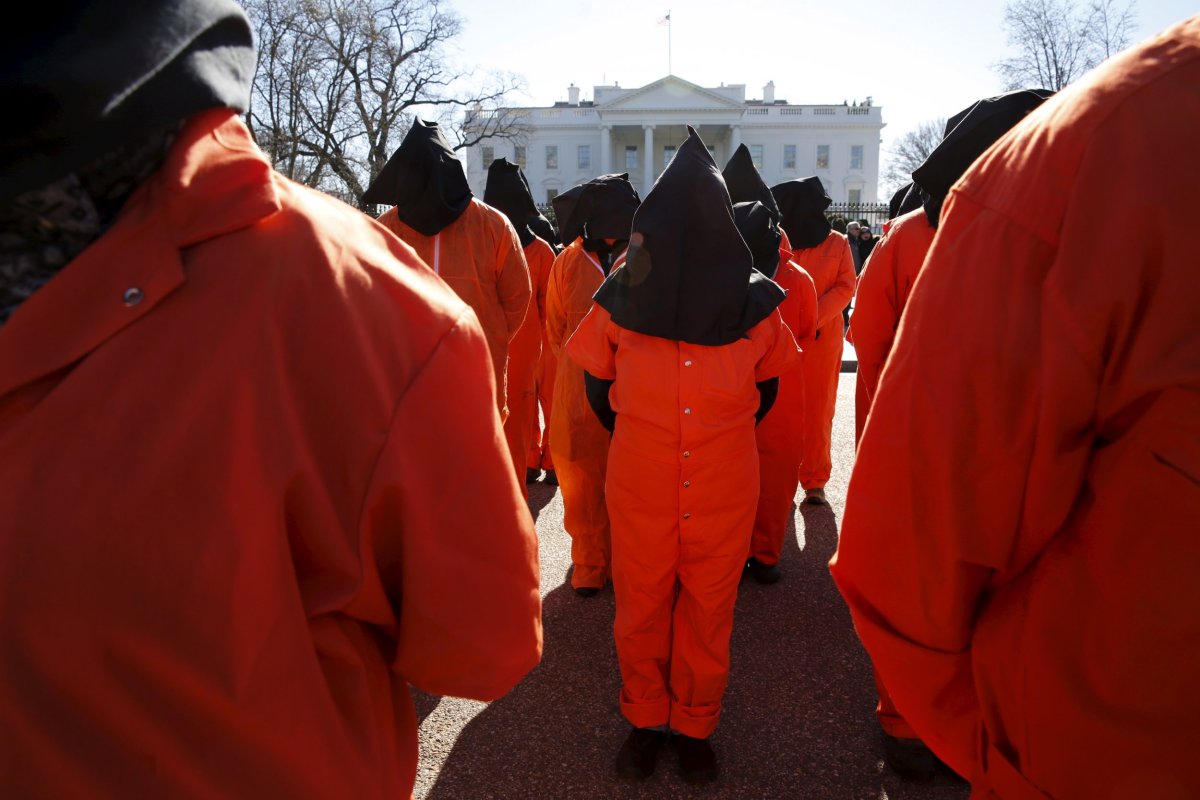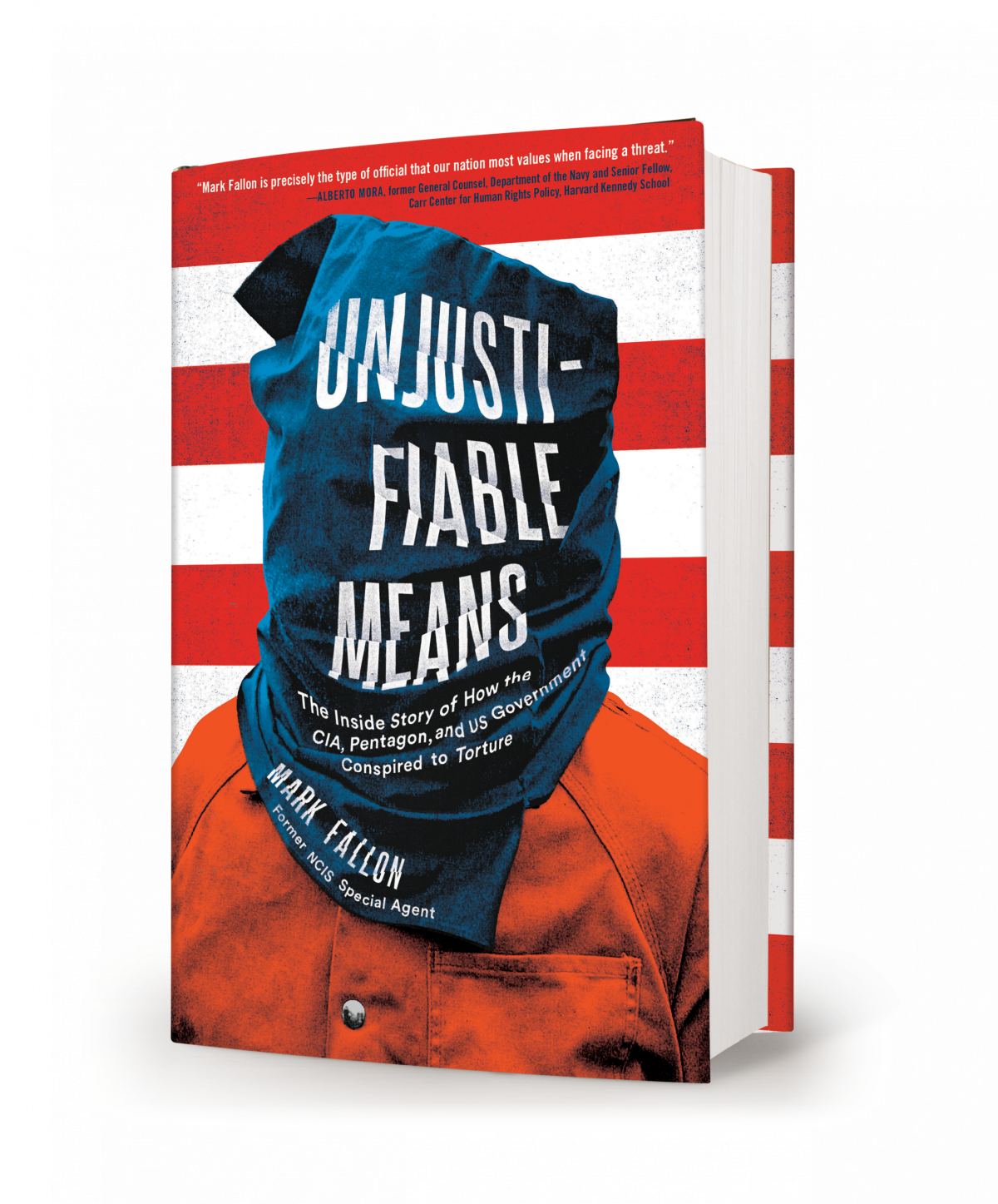
The following is an excerpt from Unjustifiable Means: The Inside Story of How the CIA, Pentagon and U.S. Government Conspired to Torture, which will be published October 24.
On September 11, 2001, the purposes and methods of war radically changed. A group of unsophisticated thugs, in service to a charismatic leader, used a few thousand dollars to mount a surprise attack. Armed with box cutters, airline tickets and some rudimentary knowledge of flying, they executed one of the most successful military strikes in the history of the world, obliterating the heart of the international financial industry and nearly scoring a direct hit on the Pentagon, America's supreme military command.
The world's most powerful country was momentarily helpless, despite spending almost 22 percent of the annual federal budget—approximately $400 billion—to pay for the most highly trained military and the most sophisticated weapons ever known. As so often happens at these crisis points, America had been looking in the wrong direction, back at what war had been rather than what war was quickly becoming.
Whatever else it accomplished, 9/11 revealed what the new rules of war would be: Our enemies wouldn't wear uniforms, nor would they represent a nation. They wouldn't attack a military target to control territory. They would slaughter civilians to control minds, and unlike most soldiers, they didn't fear death. This was a secret army that needed no central command, only a loose structure and a desire to destroy anything Western.
To Americans and to our allies, the attacks of 9/11 seemed "irrational," "mindless," a "blind lashing out against Western culture." They were not. They reflected a calculated strategy that has yielded exactly the results the planners hoped for.
But the story is more nuanced than that. Al-Qaeda, which quickly claimed responsibility for the attacks, didn't hate us for who we were so much as they hated us for where we were. The group had its roots in the 10-year Soviet occupation of Afghanistan that ended in 1989. Formed mostly of young Arab militants who flocked to Afghanistan to join the "holy war" against the Soviets, Al-Qaeda's interests initially aligned with the U.S., and indeed (along with other Islamist extremists fighting the Russians), Al-Qaeda received America financing and weaponry, along with training. But once the Soviets were driven out, Osama bin Laden, the wealthy young Arab who had become Al-Qaeda's leader, turned his attention to the superpower that still retained a dominant position in the Muslim world: the United States.
Al-Qaeda's aim was (and remains today, six years after bin Laden's death) to drive us—our institutions, our propaganda, our profit-making machinery, our religious colonizers—from the Middle East, just as they had driven the Soviet Union and its in influences out of Afghanistan and elsewhere: a slow death. Al-Qaeda sought a war of attrition in which they would provoke action that would attract more followers to their cause while slowly bleeding the U.S. of its resolve.
Along the way, America changed. While brave men and women from all the military branches and across the intelligence services were putting their lives at risk in Iraq and Afghanistan (and in other places we will never know about) some went to the dark side. Under the pressure of a new kind of warfare, we threw away our vaunted democratic principles and ignored international conventions the United States had proudly helped craft. In the pursuit of bogus "intelligence" coups, we employed interrogation methods borrowed from the Nazis and North Koreans. We treated detainees as somehow subhuman, and in the process we became something less than human ourselves. Worst of all, we did all this under Washington's watchful eye and with its tacit and sometimes explicit encouragement.
I've been on the front lines of the so-called war on terror. I spent more than 30 years in counterintelligence and federal law enforcement—as a special agent for the Naval Criminal Investigative Service (NCIS) and as assistant director for training at the Federal Law Enforcement Training Centers within the Department of Homeland Security. I was also at the U.S. naval base at Guantánamo Bay—Gitmo, as it became known—in the early days after 9/11, when there was still hope we would fight this battle consistent with American principles. And I was a frequent visitor at Gitmo only a few years later, when all hope of doing the war on terror right was already lost. I've seen what happens to conventional soldiers, case officers and special agents alike, to their commanders and to their political leaders when they must fight an enemy they don't understand, an enemy that instead of respecting their power and wealth sees both as evidence of their absolute corruption.
America still fighting an enemy that doesn't need a quick win because of budgets or election schedules. This is an enemy that is prepared to fight for centuries if necessary. Thanks to superior strategy, this enemy now controls a battlefield that is not a geographical location but a psychological terrain—a battlefield that promises to expose the truth about who we really are.
We should keep their goals in mind as we continue this fight this war today. During the 2016 presidential campaign I listened with horror as Donald Trump praised waterboarding and other brutal, discredited techniques. More recently, he's pledged to bring back waterboarding "and a hell of a lot worse." He's considering an executive order to expand Gitmo, where many remain forever prisoners in a forever war, and reopening the secret CIA prisons where Americans wrongfully held dozens of detainees and tortured terror suspects. He's also continued to hide, redact and classify evidence of our atrocities, which are laid out in the Senate's report on torture. As all of this has unfolded, I can't help but think we're hanging a great victory to Al-Qaeda and our other enemies. Their brutality has made us brutal too.
Related: How a botched translation landed Emad Hassan in Gitmo

I felt compelled to write Unjustifiable Means. The torturers and their apologists have made a concerted effort to rewrite history and shape the perception of the American public with dubious claims of heroic actions, but there's nothing heroic about abusing a defenseless human being. Those who committed such acts will have to live with the shame of what they did and the knowledge that their actions undoubtedly cost lives.
I was on the inside, in the arena, engaged in an almost daily battle to fulfill my orders not only to bring terrorists to justice but also to treat detainees humanely. I had a duty and did my job, and in the end I couldn't stop what I could see so clearly happening around me. That's my failure. But I tried.

Mark Fallon spent more than 30 years in government, 27 of them with NCIS, and two as a member of the Senior Executive Service within the Department of Homeland Security. He has spoken publicly and written extensively on the subject of combating terrorism and interrogation procedures and continues to be a vocal advocate for human rights. He has earned numerous honors and awards for his service, including: Department of Defense Award for Most Outstanding Anti-Terrorism Innovation/Action; Department of Defense Counterintelligence Award for Outstanding Achievement; U.S. Army Distinguished Civilian Service Award and Medal; U.S. Secret Service Director's Honor Award; Armed Forces Civilian Service Award and Medal; Department of the Navy Superior Service Award and Medal; Common Cause Commendation for Uncommon Courage. He is currently the director of ClubFed, LLC, an international strategic consultancy firm.
Uncommon Knowledge
Newsweek is committed to challenging conventional wisdom and finding connections in the search for common ground.
Newsweek is committed to challenging conventional wisdom and finding connections in the search for common ground.
About the writer
To read how Newsweek uses AI as a newsroom tool, Click here.








